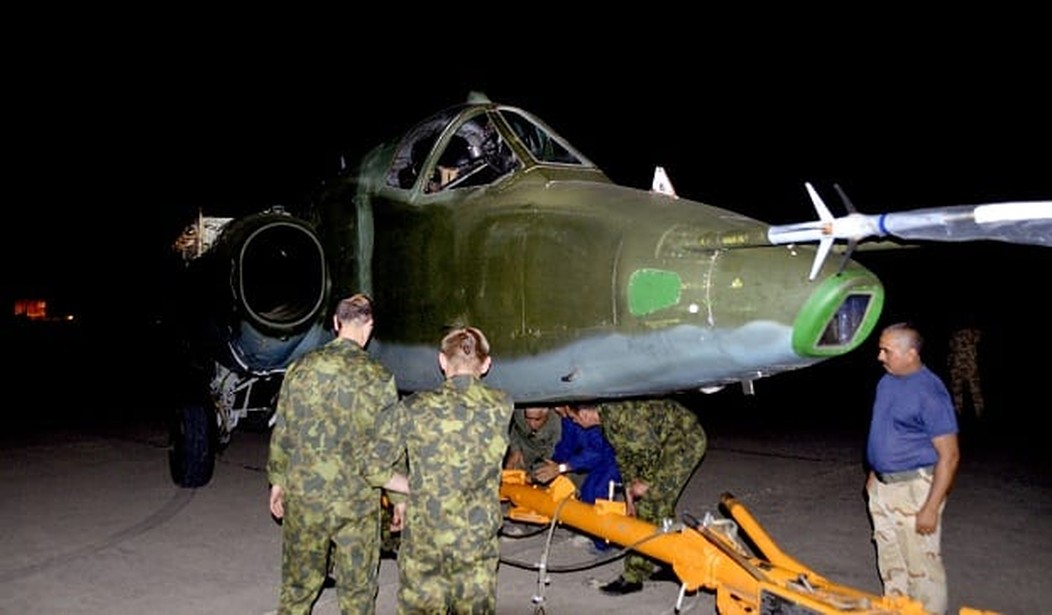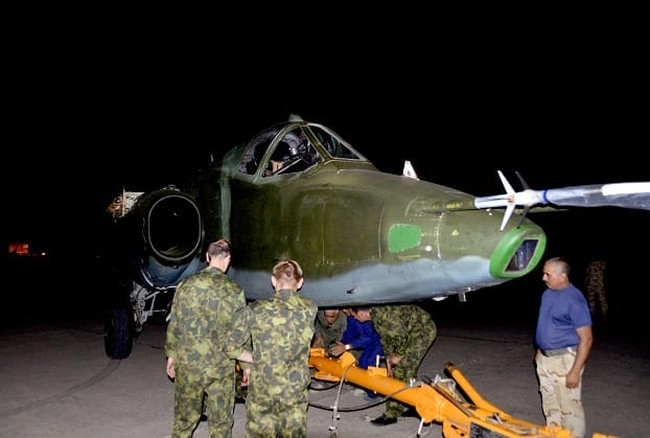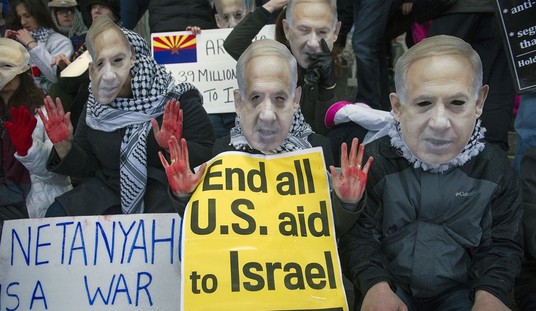Nature, it is said, abhors a vacuum. The aphorism applies as equally to politics as it does to science. Back in 2011, the New Yorker had this insightful article on Obama’s disinterested foreign policy:
Nonetheless, Obama may be moving toward something resembling a doctrine. One of his advisers described the President’s actions in Libya as “leading from behind.” That’s not a slogan designed for signs at the 2012 Democratic Convention, but it does accurately describe the balance that Obama now seems to be finding. It’s a different definition of leadership than America is known for, and it comes from two unspoken beliefs: that the relative power of the U.S. is declining, as rivals like China rise, and that the U.S. is reviled in many parts of the world. Pursuing our interests and spreading our ideals thus requires stealth and modesty as well as military strength. “It’s so at odds with the John Wayne expectation for what America is in the world,” the adviser said. “But it’s necessary for shepherding us through this phase.”
The net result of Barack Obama’s “leading from behind” has been a vacuum that our adversaries have rushed to fill. Three nations in particular — China, Russia, and Iran — have used our lack of attention to arrogate power and influence to themselves. China, of course, is in a class by itself. Its size, wealth, and location would indicate to a sane administration that it needs close attention. While China acts in its own self-interests it doesn’t do so recklessly. What is more troubling is the pairing of Russia and Iran as allies in rolling back American influence. When coupled with Obama’s hubris and bonejarring naivete this alliance is potentially disastrous.
In 2009, the Obama administration decided, in its usual too-clever-by-half way, that Russia was a logical intermediary to negotiate with Iran to curtail their march towards status as a nuclear power.
In February, President Barack Obama sent a letter to Russian President Dmitry Medvedev seeking greater cooperation from Moscow for addressing concerns regarding Iran’s nuclear program. The letter indicated that the U.S. deployment of a missile defense system in eastern Europe opposed by Russia would hinge on progress in preventing Iran from developing nuclear weapons.
Responding to early press reports suggesting that the letter offered Moscow a trade of the missile defense system for cooperation on Iran, Obama clarified during a March 3 press conference that “what I said…was that, obviously, to the extent that we are lessening Iran’s commitment to nuclear weapons, then that reduces the pressure for or the need for a missile defense system.”
Of course, “early press reports” were correct and Obama did, in fact, kill the deployment of Ballistic Missile Defense to Poland and the Czech Republic in exchange for Russian cooperation.
Obama’s climbdown is likely to be seen by Russia as a victory for its uncompromising stance.
Today, however, analysts pointed out the decision would help Obama secure Moscow’s co-operation on a possible new sanctions package against Iran and would further his desire to “reset” relations with Moscow following a dismal period under the Bush administration.
As US power receded in the Middle East and Persian Gulf, our erstwhile interlocutor and Iran found areas of cooperation. When the planned overthrow of Syrian dictator Bashar al-Assad, a long-time military client of Moscow and ally of Tehran, degenerated into a protracted war of attrition against rebels supported by the United States, both Russia and Iran joined forces to save al-Assad and drive the United States from the region.
When the war in Syria spilled over into Iraq, it was no surprise that Iran offered assistance to their co-religionists, the Iraqi Shia regime. It was a bit more a surprise when Russian materiel began turning up in Iraq as Russia’s Iraqi client had come to an untimely end while attached to a rope in 2006. This is more of a public relations exercise than anything else as the Iranian military could only aspire to be deemed incompetent.
Yesterday, it was announced that Russia was sending combat aircraft and trainers to Iraq:
Iraqi government officials said today that Russian experts had arrived in Iraq to help the army get 12 new Russian warplanes into the fight against Sunni extremists.
The move was at least an implicit rebuke to the United States, where concerns in Congress about the political viability of Prime Minister Nouri al-Maliki’s government have stalled sales of advanced jets and helicopters to Iraq.
“In the coming three or four days the aircraft will be in service to support our forces in the fight” against the insurgents of the Islamic State of Iraq and the Levant, said Gen. Anwar Hama Ameen, the commander of the Iraqi air force, referring to five SU-25 aircraft that were flown into Iraq aboard Russian cargo planes Saturday night and two more expected later today. Ameen said that Russian military experts also had arrived to help set up the planes but that they would stay only a short time.
The planes are rather aging Sukhoi-25 ground attack planes, equivalent in role but not capability to the A-10. But smart money says that if these planes do get into action they will be flown by Russian pilots. The Iraqi Air Force has not had jet aircraft since 2003, it was scheduled to receive a shipment of F-16 export fighters this fall. It takes time to train pilots and ground crew and it takes parts to keep planes in the air:
But with the United States holding back on strikes and no jets of its own, Iraq has been forced to rely on fixed-wing-propeller planes and helicopters armed with U.S.-supplied Hellfire missiles.for aerial attacks.
Despite its limited air power, the Iraqi military has managed to go on the offensive against ISIS in some areas in recent days, launching a commando attack to retake Tikrit and securing the road from Baghdad to Samarra this week.
With its first U.S.-supplied F-16s not expected to arrive until fall, the planes from Iran and secondhand jets from Russia and Belarus are an unsatisfactory stopgap, officials say.
Regardless of the effectiveness, the impact is huge. Twice regional allies of Tehran have come under attack. Both time Tehran has responded with alacrity. Both time Russia has provided political cover for Iranian military intervention and has helped provide training and equipment. As Iraq breaks down, the Russians and Iranians are looking at an alliance that encompasses most of the littoral areas of the Persian Gulf as well as the eastern end of the Mediterranean.
In short order you will see the Kurds make their peace with Iran and you’ll see the Turks looking over their shoulders to see if Obama is still leading from behind.













Join the conversation as a VIP Member